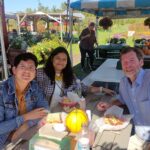By Onelia Odeth Díaz Súchite
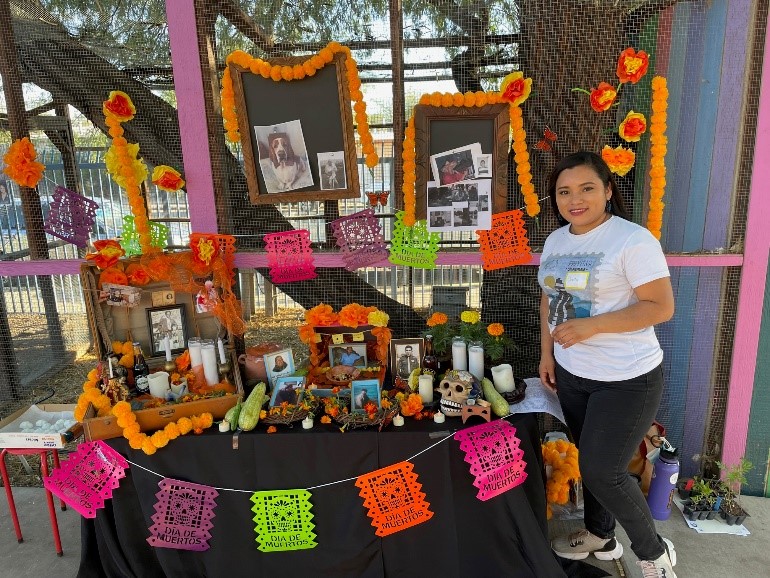 Hello, I’m Onelia Díaz, from Guatemala, I work as a Specialist in Food Security, with a focus on Gender, in the Non-Government Organization “Paz y Desarrollo”, in agroecological initiatives and housing improvement in the native communities from the Ch´orti´ Region of Guatemala. I’m so excited to be part of the Professional Fellows Program on Economic Empowerment and have my fellowship in the Community School Garden Program from the University of Arizona, in Tucson.
Hello, I’m Onelia Díaz, from Guatemala, I work as a Specialist in Food Security, with a focus on Gender, in the Non-Government Organization “Paz y Desarrollo”, in agroecological initiatives and housing improvement in the native communities from the Ch´orti´ Region of Guatemala. I’m so excited to be part of the Professional Fellows Program on Economic Empowerment and have my fellowship in the Community School Garden Program from the University of Arizona, in Tucson.
Today, during the Field Trip to the Food Literacy Lab, one of the things that impacted me personally was sharing with children from so many cultures that come from immigrant families of South and Central America, Africa and Asia. I talked to them about their experiences, and I learned about their problems and how difficult it has been for them to study in another country and in a different language and how that made it even more difficult when they try to share with classmates and learn.
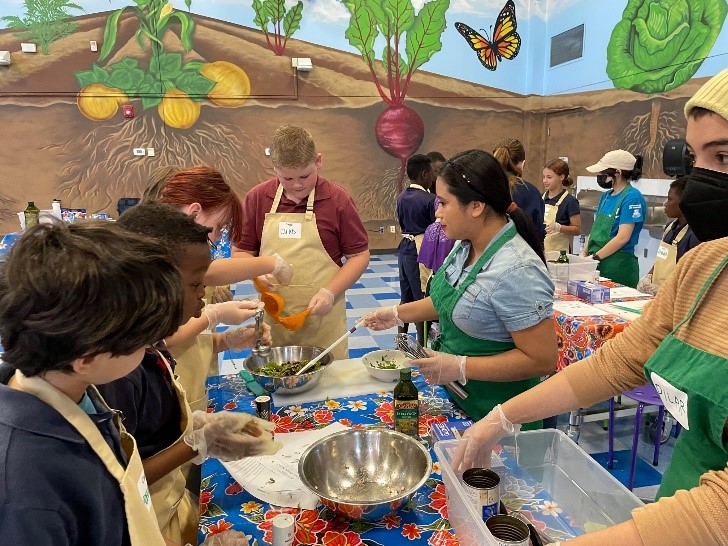 Professionally, I’m so excited to have been sharing and learning about the children’s’ empowerment in the gardening and prep food area with the food produced at the scholar gardens, and also to promote the research about the hydroponic systems and composter. Academically, I think the most important thing I’ve learned is about the agrovoltaic systems in gardening, because it is necessary to think about how to take advantage of solar energy in agriculture. One of the most important elements of the day for me is the volunteering and the work the community does to improve community leadership and governance, because “Only the communities can rescue the future communities”, and also, I loved the Green Academy Workshop to improve the skills, knowledge and the empowerment of the communities’ culture, as “Día de Muertos” with the teachers.
Professionally, I’m so excited to have been sharing and learning about the children’s’ empowerment in the gardening and prep food area with the food produced at the scholar gardens, and also to promote the research about the hydroponic systems and composter. Academically, I think the most important thing I’ve learned is about the agrovoltaic systems in gardening, because it is necessary to think about how to take advantage of solar energy in agriculture. One of the most important elements of the day for me is the volunteering and the work the community does to improve community leadership and governance, because “Only the communities can rescue the future communities”, and also, I loved the Green Academy Workshop to improve the skills, knowledge and the empowerment of the communities’ culture, as “Día de Muertos” with the teachers.
My favorite moment of the day was when Moses and the team of students from the Farm Club were working in the garden, and at the end of the day we played “Hot Potato”. That was so interesting because we shared stories with each other about the highs and lows of our activities during the week. To me, it was good feedback to improve on the next week. During the whole day I was helping in the tour and with food prep in the Food Literacy Lab with a group of children, and then I helped to decorate “El Altar de día de Muertos” for the stand of the green Academy, sharing a little bit of my culture in the stand. At the end, I was planting some vegetables at the Farm Club. One of the obstacles during the day was learning about some agro-practices, but Carly, Selene and Pilar helped and explained them to be in Spanish so I could understand better.

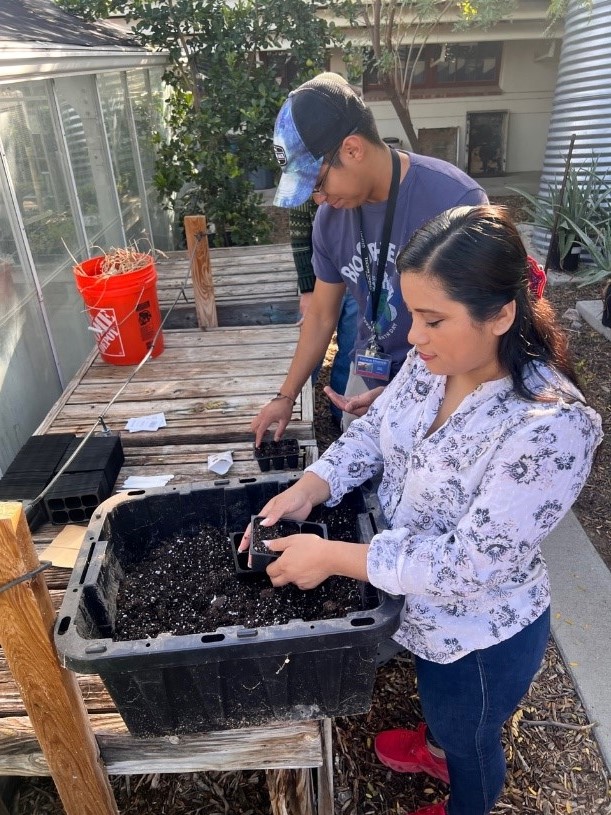
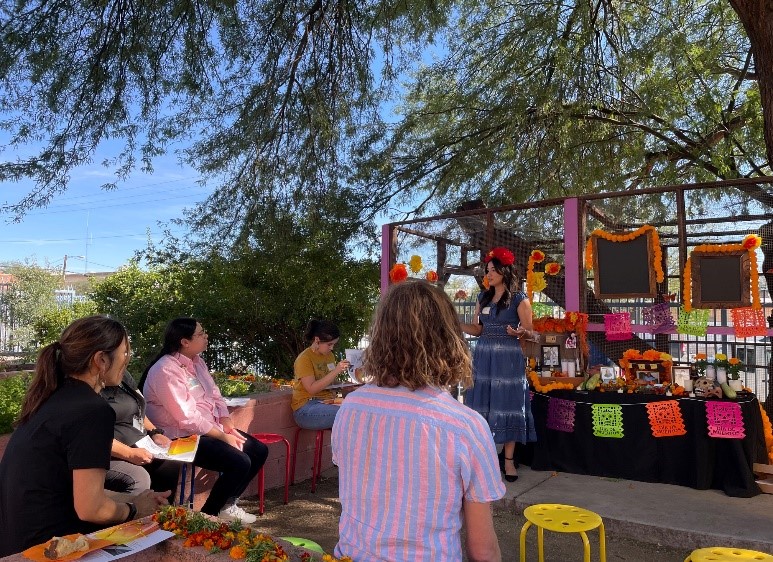
When we came back home, we shared our ideas about food insecurity as a global problem, because there were some people down the bridge of Tucson with a white flag asking for food or money. I talked to them about the the roots of food insecurity and how it is not just “no have food, or don’t know how to produce food”, because the families need to live in good housing conditions, and have access to a job, education and safe water. Climate change has obliged some families to migrate, because for them it is impossible to produce or harvest their food, because there’s no more water or because of the expensive prices of some agro-inputs, and also other roots of instability such as insecurity and violence.
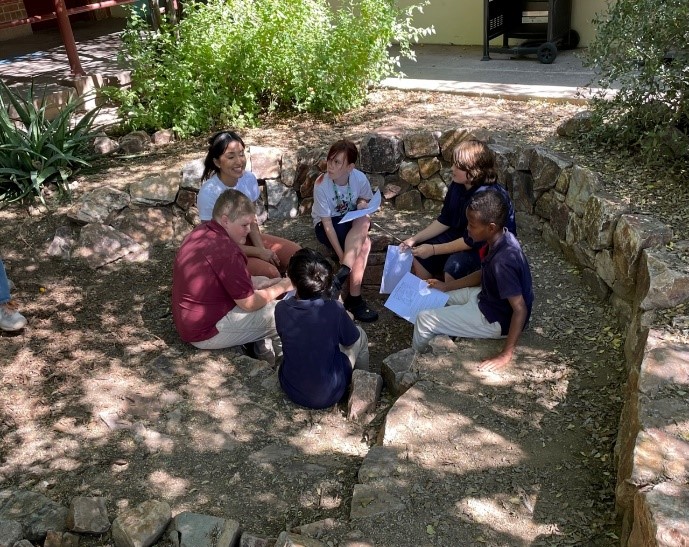
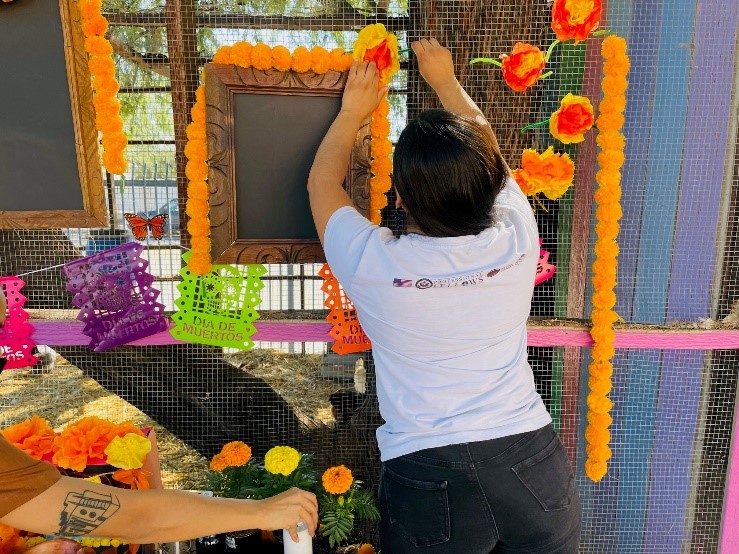
At the end, I can say that I loved this day. Thanks to the Team of the Community School and Garden Program and to ITD for this opportunity of professional learning.
Love! Onelia Díaz
All opinions expressed by the program participants are their own and do not represent nor reflect official views from the Bureau of Educational and Cultural Affairs of the U.S. Department of State, or of the Institute for Training and Development, Inc.

